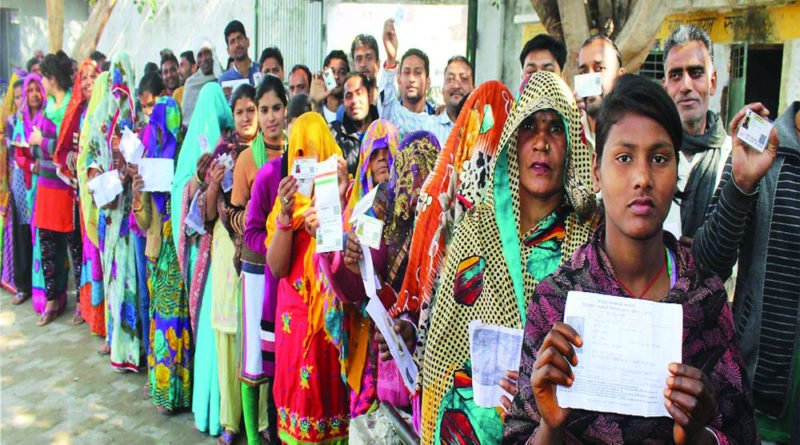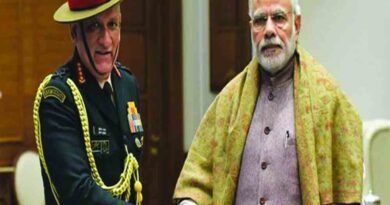Leadership quality
People vote for a party depending on various factors but little or no importance is given to the quality of the person chosen to lead it
Politics is the engine of society. The best of carriages, bogeys and saloons would come to naught if the engine was not maintained well. India has had satisfactory governments and poor ministries but still little thought has been given to the quality of men and women who should govern the country. Neither voters nor parties and their leaders or even our political scientists have given much thought to this subject. If the latter have thought about it, they do not seem to have written or propagated any ideas about it.
Indian elections have experienced positive polling, negative voting, voters choosing with their feet and polarised mandates, caste, class or community-wise. People have been heard saying that they voted to feel safe as a country after Indira Gandhi’s assassination in 1984. Never have I heard anyone saying that he/she voted to try and ensure good governance. Although after the 2019 polling, I did hear some Kolkata voters say that they voted for Narendra Modi for he was the fittest ruler among the choice before us at the Centre, although they did not agree with his party’s ideology.
That a successful democracy needs an effective Opposition is universally agreed. To add, a credible Opposition should also have an inner-party democracy. Out of the 68 years of India’s democratic functioning, most of the time we have either not had an adequate Opposition or the main Opposition party lacking internal democracy that would have injected fresh energy and perspectives. Lately, we have the doubtful benefit of hereditary parties or family-led organisations. The flip side to this problem is that most politicians in recent decades belong to mainly three categories — a family tradition, the unemployables and the freaks. Most others and their parents prefer secure careers or pursuits. Even well-to-do, financially secure families do not encourage their offspring to risk years in politics. Yet it is the same India which sent out their best youth, grown-ups and old, women and men to agitate for freedom. Was this patriotism spontaneous to the people or was it inspired by the leadership of Mahatma Gandhi? Before 1920, there was no tradition of such mass participation in the country’s political destiny, although India, certainly large swathes of it, was under the heels of invaders since the 12th century. And soon after 1947, the patriotic enthusiasm began to dry up.
Independence from the British did not mean that freedom was guaranteed or even secured forever. We experienced a shock in 1962 in Ladakh and Arunachal Pradesh (then North-East Frontier Agency, NEFA) at the hands of China to the extent that the Prime Minister appeared to weep on All India Radio when he said, “my heart goes out to the people of Assam”. Radio China was broadcasting in November 1962 that the brave soldiers of People’s Liberation Army (PLA) were looking forward to spending Christmas at Calcutta. And the State Bank had unlocked its treasury at its branch in Tezpur and currency notes were being blown by the breeze on the streets.
Retaining freedom is more important than winning it. Therefore, the best talent in the country should try going into politics. Everyone would not succeed. As planned, I rounded up my commercial career and came to Delhi nearly 40 years ago en route Gujarat. In those years caste mattered so much that even the most generous political party could not allot any seat (Lok Sabha). I, therefore, held back in Delhi and worked here quietly for 16 years and then got to the Rajya Sabha for a part term as a result of a byelection. I did my best and that was my satisfaction out of the service I performed. For example, I was able to build 49 Sulabh shauchalayas in Baroda city and in all 88 bus stops in the district with the Members of Parliament Local Area Development Scheme (MPLADS) funds I was allotted.
In India, members of the elite and intelligentsia often console themselves that politics is a dirty game and good people should avoid it. This is not true. In my years, I found politics was cleaner than my earlier 25 years in business. Let me quote one example, most of the non-performing assets (NPAs) with the banks are purely business failures. There are much fewer scams in politics.
If I did not go farther in politics, it was because of my peculiarities. I was an ethnic Gujarati, brought up in Bengal and had spent 25 years in business with no experience in politics. We must remember that while business management is a game of selection, politics is one of elimination and in business one generally succeeds without grabbing anyone else’s money. In politics, one wins by dispossessing someone else of his seat. Nevertheless, one’s attitude should be similar to the military national service. Whether one likes soldiering or not, two years are to be devoted to training as a matter of duty. In Britain, many Oxbridge graduates join politics as do a significant number of public school boys and girls. True, in the US it has not been quite the same. When my father was at the University of Boston, between 1929 and 32, he often said he would return to India and join the Congress party. Gandhi was already an acclaimed leader and yet the reaction was often, “After such expensive studies, why go to politics?” Yet the American standards are reasonably good.
Our voters should be more demanding and not so tolerant of standards as they often can be. Take the issue of dynasty. In May 1981, when Rajiv Gandhi was contesting his first byelections from Amethi, I spent a few days motoring through the constituency accompanied by a colleague. One afternoon we stopped at a dhaba where an enthusiastic discussion was going on. The general tenor was how well Rajiv spoke. What chaste Hindi he used and so on. After 15 minutes or so I intervened to ask, “What service has he done for the country except for flying aeroplanes for Indian Airlines?” One sleepy person present suddenly woke up to assert, “He is learning his mother’s vocation. Don’t doctors bequeath their dispensaries to their children? Don’t lawyers train their children how to be advocates? At least Rajivji had to come and get elected again and again to get the people’s approval.”
Coming to corruption, we came across a lucid explanation on the outskirts of Malihabad in the 1984 General Election. Again a dhaba discussion, Anwar Ahmed, a Minister in the State Cabinet, was being praised for being such a good and honest man. One of the participants lost his patience and intervened to ask, “Yes, Anwar Saheb is very upright and honest, he has been a Minister for 10 years but has not been able to build a house for his family. If a person cannot do this least bit for his wife and children, what can he do to help common people like you and me?”
What management is to a company and its success, the Government is to a country. Yet most of our people do not connect the country’s stake when they go to the ballot box. The debacle of 1962 caused by unpreparedness needs recollection. The Indian Army did not have mountain guns or howitzers to fire in mountainous NEFA. The second batch of troops that was sent up to 16,000 feet had canvas shoes, no gloves and ordinary woollen pullovers. General Rob Lockhart, the interim Commander-in-Chief of the Indian Army after Independence, said that we are a peace-loving nation. We do not really need an Army. And that the police is sufficient for our purpose. After all this, the same political party was re-elected in the following election. And in the 1990s, our Prime Minister told in a reply to a journalist that India is too large a country to worry about terrorism.
(The writer is a well-known columnist and an author. Views expressed are personal)
Source: The Pioneer




